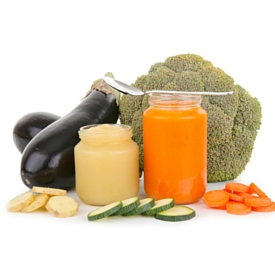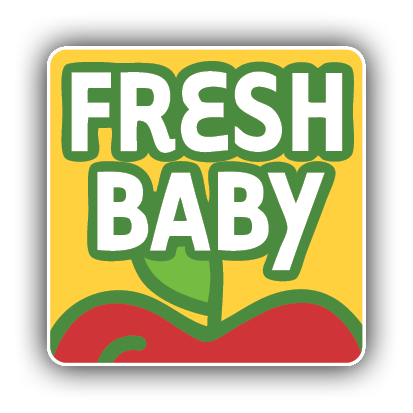
As new parents, you want to provide your baby with the best possible start in life. Studies show that babies who are fed nutritious, healthy diets grow into stronger kids and better-adjusted eaters than those who are fed poor diets. Making baby food at home is a simple, nutritious, and economical plan that makes it easy for you to make sure your child gets the best start possible. Many people don’t realize that making baby food at home has many benefits.
- Encourage healthy eating habits
- Increased nutritional value
- Elimination of additives
- Improved freshness
- Additional variety
- Enhanced control
- Lower costs
Encourage healthy eating habits
Starting out by feeding your baby healthy food encourages better eating habits for the whole family. The United States has become a fast-food, junk-food society that has led to the degradation of healthy eating habits. Obesity has risen to epidemic levels among children, adolescents, and adults. If current trends continue, obesity stands to replace cigarette smoking as the number one non-disease killer in this country. One of the primary causes of overweight problems in children and adolescents is poor eating habits. Poor eating habits are directly linked to several health problems, including coronary heart disease, hypertension, high cholesterol, diabetes, and some cancers.
Increased nutritional value
Vitamins and other nutrients are critically important to your baby. For the next three years, your baby will experience rapid growth and development. It is essential that he be fed a healthy and nutritious diet in order to maximize his growth and development process.
Processed baby foods have added water, sugars, and starchy fillers. While these products are not nutritionally bad for your baby, their use in baby food greatly dilutes the nutrient content of the actual foods. You can see the difference between the products of various food manufacturers; one brand of sweet potatoes may have a different nutritional value than another. This is caused by dilution.
Elimination of additives
Processed baby foods contain trace amounts of chemicals, including pesticides, herbicides, and fungicides. Although the FDA has approved these chemicals, you may choose not to feed your baby products containing them. Buying certified organic produce (fresh or frozen) and preparing food at home eliminates agricultural chemicals from your baby’s diet.
Improved freshness
While your baby does not have the refined palate of an adult, he does respond to taste, color, and smell. With the enormous availability of fresh and even frozen produce in grocery stores and the ease and convenience of home baby food preparation, there really is no reason he needs to be deprived of colorful, tasty, great-smelling baby food. Serving fresh food from the very beginning will help your baby be more open to tasting new flavors and types of food.
Additional variety
Processed baby food is developed for the mass market and, as a result, is limited in variety. Variety is key to a balanced diet, which is a core component of healthy and nutritious eating. With the amount of choice that is available in the produce and frozen-food sections of grocery stores, there is no reason why your baby should be limited by what food manufacturers consider the most popular foods. What’s more, preparing baby food at home enables you to add herbs and combine flavors so that his mealtime is a pleasurable, gourmet experience.
Enhanced control
As a parent, you want to understand and trust the ingredients in your baby’s diet. Similarly, you want assurance concerning the purity, safety, quality, and consistency of such ingredients. Preparing baby food at home provides you with control of your baby’s diet and knowledge of exactly what goes into your baby’s food. The more involvement you have with what you are feeding your baby, the more likely you are to nurture healthy eating habits.
Lower costs
Processed baby foods are expensive. The average baby in the United States will consume 600 jars of baby food. Parents who use processed baby food spend an average of $300 or more on baby food during their infant’s first year of life. Making baby food at home is extremely cost-effective, as foods may be purchased either in season or on sale. On average, baby food prepared at home can cost as little as $55 in the first year.


